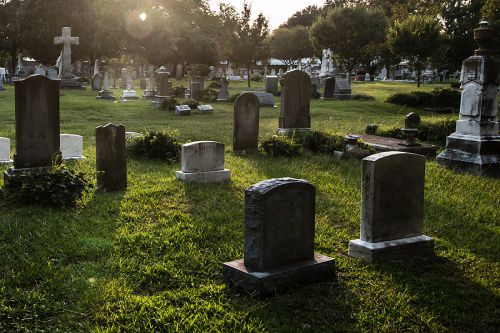Chicago’s Catholic cemeteries have helped bury the bodies of about 200 unidentified and unclaimed persons in recent years. One of the priests involved has stressed the importance of reducing homelessness and of mourning those who have no one to pray for them. Father Larry Sullivan, associate priest director of Catholic Cemeteries of the Archdiocese of Chicago, reflected on the sadness of the situation. “Obviously these are folks who have been living a marginalized life. They’ve been living on the fringes of society, alienated from family or friends, that they would truly be unknown,” he told CNA Nov. 20. “Certainly the end of their life was very difficult: they didn’t have anybody to step forward to say that they knew this person,” he continued. “I think it’s very important that even though they’re unknown to us, they’re known to God.” Father Sullivan presided at the latest committal service at Chicago’s Mount Olivet Cemetery on the afternoon of Nov. 19. The remains of 12 unidentified adults as well as 24 unborn babies miscarried or stillborn were interred. Various city and county officials, funeral directors and others attended the committal ceremony. The committal service does not differ from an ordinary Catholic burial. “We do the full rite of Christian burial,” Father Sullivan said. “I really feel that we’re stepping in in the place of loved ones. We’re stepping in the place of mourners,” he said, adding, “everyone has the right to be mourned and prayed for.” The burials are part of the Chicago archdiocese’s continued response to an overcrowding crisis at the Cook County Morgue. Many bodies were left unclaimed or unidentified and the state of Illinois had made budget cuts to its indigent burial fund. Catholic Cemeteries of the Archdiocese of Chicago has donated hundreds of graves to help bury the remains of the deceased. Since 2012 the cemeteries have helped lay to rest about 200 unidentified or unclaimed adults’ remains, in addition to the fetal remains of about 600 unborn babies who were miscarried, stillborn, or aborted. Many of the adults were homeless. Cardinal Francis George, who died in 2015, led prayers for the first burials. Archbishop Blase Cupich presided at a committal ceremony in December 2014. Roman Szabelski, executive director of Catholic Cemeteries of the Archdiocese of Chicago, said he felt everyone has brought something to society, including those who died unknown. “They are somebody’s mother, brother, sister spouse, child, whatever, and it’s regretfully because of their own situation that they are left to be street people, so to speak, and to die alone,” he told CNA. “We as a society, we as a Church, step up and pray for those and mourn for those people who have died, realizing that they are a gift of God and they should be recognized and honored even in death.” Father Sullivan said addressing the problem of homelessness would help reduce the situations where people die without being known to others. He emphasized the need to ensure that people get proper psychological care and get off the streets. “We should never see anyone who is homeless. That in itself is a breakdown in our society,” he said. The priest explained that the Church sees burial of the dead as a corporal work of mercy. This is drawn from the belief that our bodies are “a gift from God” and Christians are responsible for both the spiritual and physical well-beings of others. Prayers for the dead have a spiritual importance, while burial of the bodies is physically important. This applies after death. “Our bodies are a gift from God to be treated with dignity and respect. We can’t just offer prayers, we have to physically do something to help,” he said. “It’s not simply enough for me to pray for somebody who is hungry. I have to offer them food. It’s not enough for me to pray for somebody who is suffering. We have to ensure that their physical, medical needs are being cared for as well,” he said. Szabelski said the archdiocese’s Catholic cemeteries also provide charity assistance for 300 burials a year to ensure that families of the deceased who are entitled to Catholic burial rites can secure them even if their families cannot afford it.

